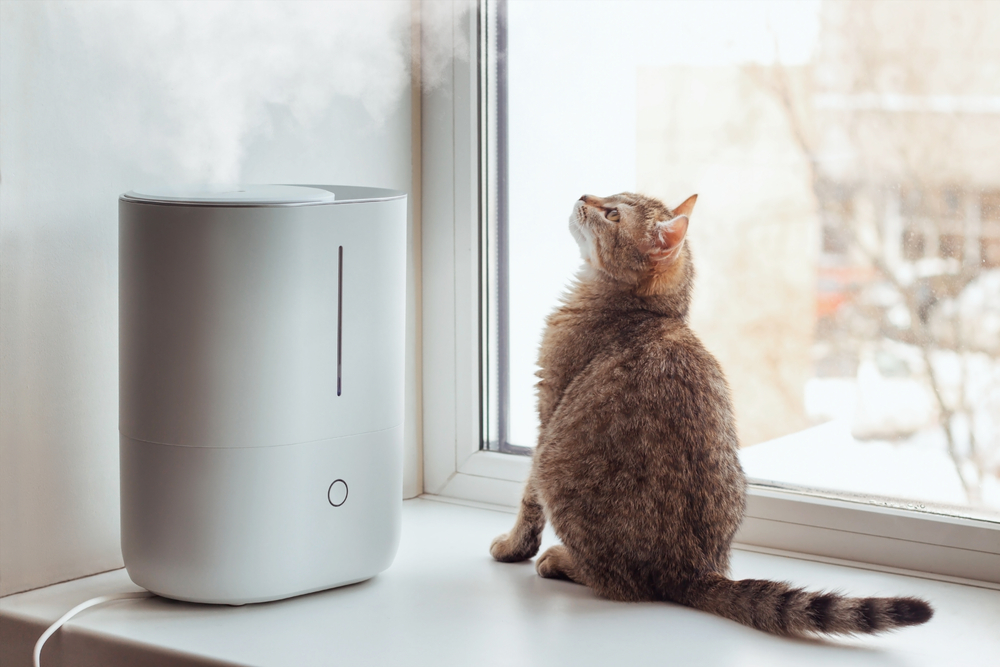Springtime can be brutal for allergy sufferers and, like people, cats and dogs can develop allergies, too. Allergies in pets can be caused by various factors, from environmental triggers, such as pollen and dust, to fleas and food, and manifest in different ways. Our Sixes Animal Hospital at BridgeMill team explains the common causes, signs, and treatment options for your dog or cat’s allergies, so you can understand and manage your furry friend’s health.
Signs your pet has allergies
The world is rife with substances that can trigger pet allergies, which are an immune system overreaction to an invading substance. In response to the invader, the immune system sends out histamine that can cause inflammation of the skin, digestive system, and upper respiratory system, and result in the following conditions:
- Excessive itching and scratching — Pets with allergies often lick, chew, or scratch their skin and paws.
- Skin irritation — This leads to redness, rashes, hot spots, and hair loss.
- Respiratory issues — Pets who are allergic will sometimes sneeze, cough, wheeze, or have a nasal discharge similar to an upper respiratory infection.
- Gastrointestinal issues — Vomiting, diarrhea, and changes in appetite can be related to allergies—specifically food allergies.
- Ear infections — Allergies can compromise the skin barrier and increase ear wax in the ear canal, allowing bacteria and yeast to grow and cause infection.
What causes allergies in pets?
Pets can be allergic to many allergens and often will be allergic to more than one item. Some of the most common pet allergies include:
- Environmental — These allergies are the result of inhalation of substances, such as pollen, dust, dust mites, and mold, in the air.
- Food — Food allergies in pets result from intolerance and immune system reactions to specific ingredients in pet food, such as beef, dairy, chicken, wheat, and soy.
Additives and preservatives in pet food can also trigger allergies.
- Fleas — Flea saliva can cause an allergic reaction in pets, resulting in flea allergy dermatitis (FAD), which causes intense itching and skin irritation.
- Contact — Contact allergies are reactions to substances in fabrics, cleaning products, laundry soap, grooming products, and other chemicals and dyes.
Treatment options for pet allergies

While allergies cannot be cured, our Sixes Animal Hospital at BridgeMill team can help you manage your pet who has been diagnosed with a specific allergy or multiple allergies. Treatment options include:
- Comprehensive allergy testing — Our team will perform skin or blood testing and gentle ear and skin swaps or scrapes to assess for mites, bacteria, and yeast. These tests can give us insight into the cause of your pet’s allergies and the appropriate treatment. We will also check for underlying medical conditions that may manifest as allergies or mimic common signs.
- Medications — Prescription medications can relieve itching and inflammation and desensitize your pet to allergens. Antihistamines, corticosteroids, and immunotherapy (e.g., allergy shots) can effectively manage your furry pal’s allergies and relieve itching and discomfort.
- Dietary management — If your pet has food allergies, our team likely will recommend hypoallergenic or limited-ingredient diets to identify and eliminate the allergens.
- Environmental management — Minimize exposure to known allergens by regularly cleaning and vacuuming living areas, laundering your pet’s bedding, and using air purifiers. When your pet comes in from the outdoors, wash their paws and coat with a warm washcloth to help minimize pollen, dust, and other substances on their skin. Additionally, regularly bathe your pet with hypoallergenic shampoos.
Allergies can significantly impact your pet’s quality of life, but with proper treatment and management, your pet can lead a healthy, happy, and itch-free life. Our veterinary team can evaluate your pet and develop a personalized treatment plan if we determine an allergy is the problem, so give our Sixes Animal Hospital at BridgeMill team a call so we can accurately assess your pet’s condition.






Leave A Comment